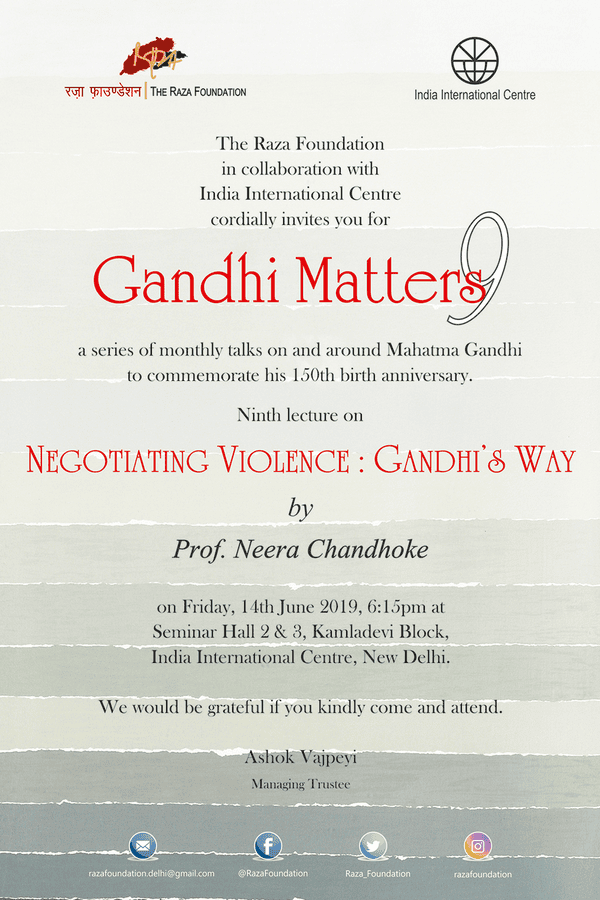
29-May-2019 12:00 AM
7107
Gandhi Matters is a series of monthly talks on Mahatma Gandhi to commemorate his 150th birth anniversary. These talks revolve around the philosophy of Mahatma Gandhi and its social and political relevance in contemporary times. The series began in October 2018, and will be wrapped up in October 2019. The Raza Foundation invites renowned social scientists, activists, and social workers to discuss on different themes in relation with Gandhian thought.
Amidst various issues ranging from deteriorating political scenario, environmental degradation, decline of social values, to different kinds of covert and overt violence witnessed around us, one can see formation of a vacuum in political thought to produce a profound solution for such issues or at least to pave the way towards their resolution. In such a scenario, Mahatma Gandhi emerges as a philosopher who not only, through his writings, compellingly professes his beliefs such as nonviolence (ahimsa), satyagraha, etc., but also allows us to rethink and re-evaluate his principles, and mould them to create variations in order to make them compatible with the present situation. The series ‘Gandhi Matters’ is one such initiative to revisit Gandhian thought.
Here, we publish the ninth discussion of Gandhi Matters by Prof. Neera Chandhoke on ‘Negotiating Violence: Gandhi’s Way’, the dialogue was moderated by Mr. Ashok Vajpeyi.
Neera Chandhoke is Professor at the Department of Political Science, University of Delhi, and Director of the Developing Countries Research Centre, University of Delhi. She received her MA (1968) and her PhD (1984) from the University of Delhi. Her main teaching and research interests are political theory, comparative politics, and the politics of developing societies with special focus on India. She has authored The Conceits of Civil Society (2003, Delhi: Oxford University Press); Beyond Secularism: The Rights of Religious Minorities (1999, Delhi, Oxford University Press); and State and Civil Society: Explorations in Political Theory, 1995 (Delhi, Sage), and has edited Mapping Histories (2000, Delhi: Tulika); Grass-Roots Politics and Social Transformation (1999, Delhi: University of Delhi Press); Understanding the Post-Colonial World (1995, published under the auspices of Nehru Memorial Museum and Library, New Delhi). Professor Chandhoke regularly contributes articles to national and international journals and to Indian newspapers on contemporary themes.
The event was organized at India International Centre on 14th of June, 2019.